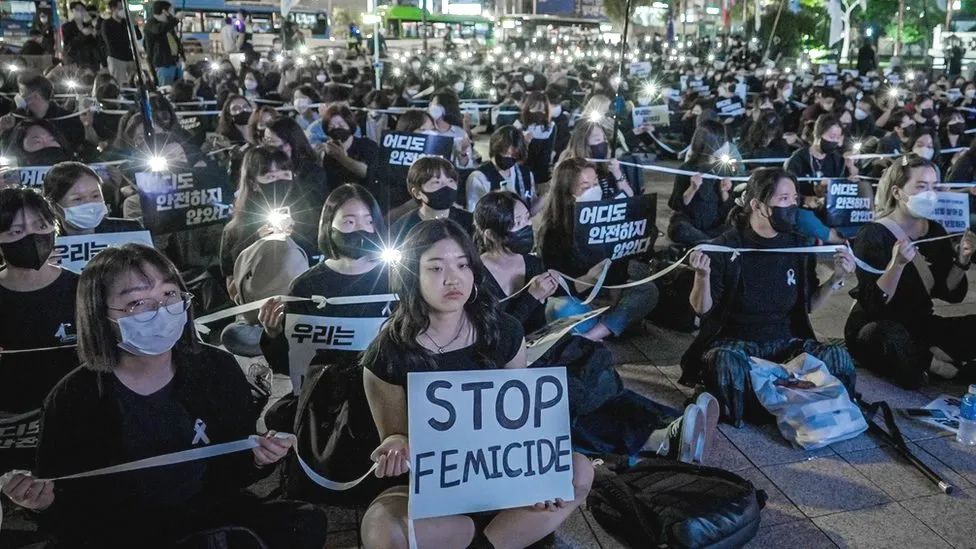|
|
Subway murder sparks fury over South Korea’s stalking laws
 Outside the women's restroom at a subway station in the South Korean capital is a plaque that reads: "Women Friendly Seoul."
Outside the women's restroom at a subway station in the South Korean capital is a plaque that reads: "Women Friendly Seoul."
168slotxo.info The best bets are " access to top websites " that are directly not through an agent, and most importantly, free trials are provided that will help players practice their best experience.
The words, meant to assure women of their safety, have become tragically ironic. Last week, inside the restroom, a young woman who worked at the station was brutally murdered. The man suspected of killing her had been stalking her for years.
The wall underneath the plaque has since become a shrine of messages left as notes, with women and men of all ages coming to express their fury, fear, and sorrow.
"I want to be alive at the end of my workday," reads one. "Is it too much to ask, to be safe to reject people I don't like?" reads another.
The mother of a teenage girl cries as she scans the messages. "Where have we gone so wrong?" she asks, now questioning whether to allow her daughter to travel to school alone.
Shocking murder
The details of this murder have shocked the country. The 28-year-old had been working her usual evening shift at the subway station, unaware she was being watched.
Her alleged attacker, 31-year-old Jeon Joo-hwan, waited for over an hour outside the toilets, wearing gloves and a disposable shower cap, before following her inside and stabbing her to death.
It was the day before he was due to be sentenced for stalking her.
The harassment started in 2019, a year after the pair began working together. Jeon called his colleague more than 300 times begging her to date him, threatening to harm her if she refused.
Anti-stalking laws
Until last year, stalking was classed as a misdemeanour, punishable only by a small fine. An anti-stalking law was finally passed in October, but many argued it was insufficient and would not protect victims, primarily because of its stipulation that a perpetrator can only be prosecuted with the consent of the victim.
This loophole, they say, makes it possible for stalkers to bully their victims into withdrawing cases - in the same way Jeon attempted to threaten his victim. Jeon reportedly told police he murdered her because he resented her for taking legal action.
Data obtained by the BBC from South Korea's National Police Agency shows that since the stalking law came into force last year, 7,152 stalking arrests have been made, but with only 5% of the suspects detained. In cases where police applied to the courts to get the suspect detained, one in three requests were denied.
|
|